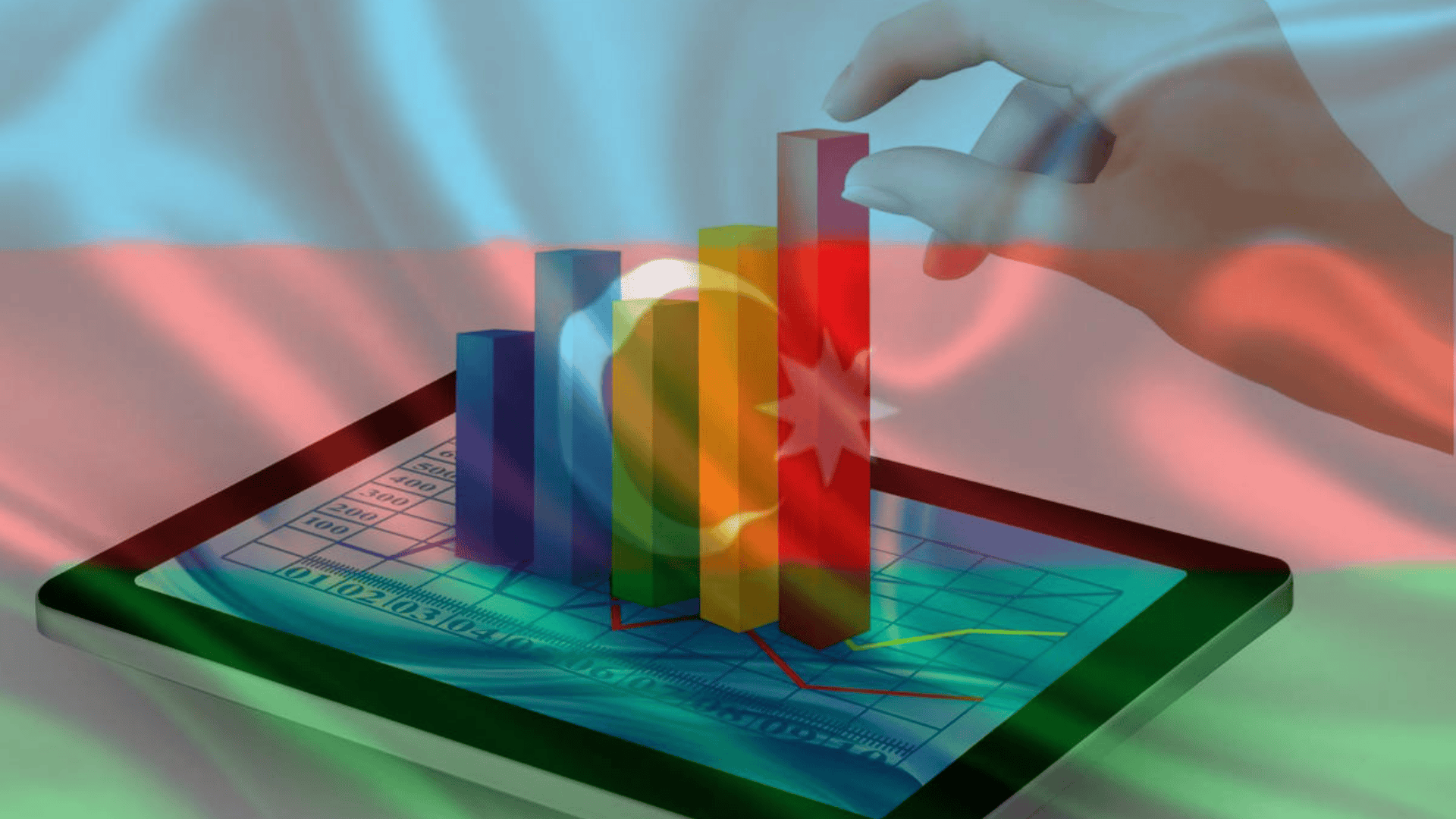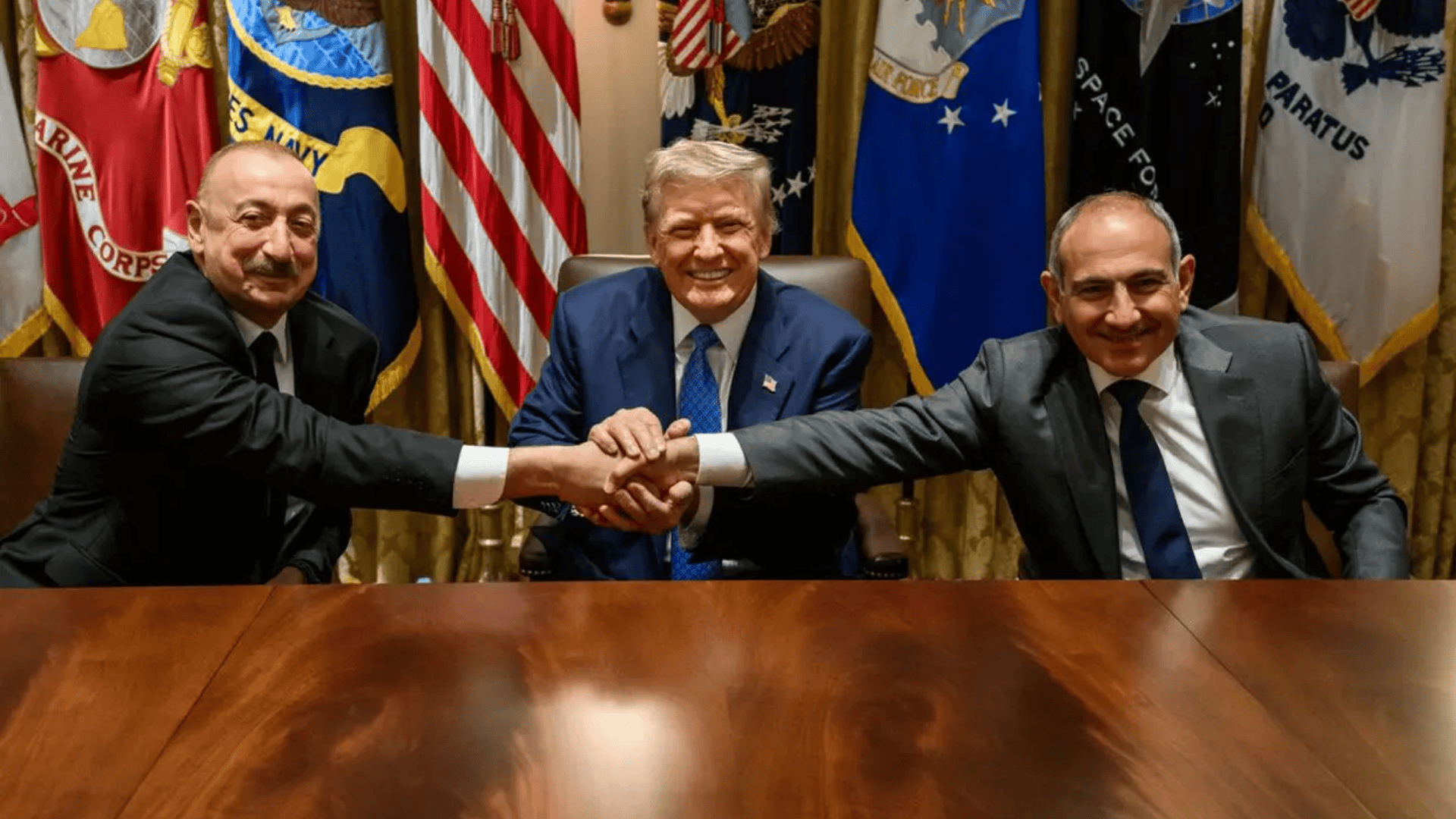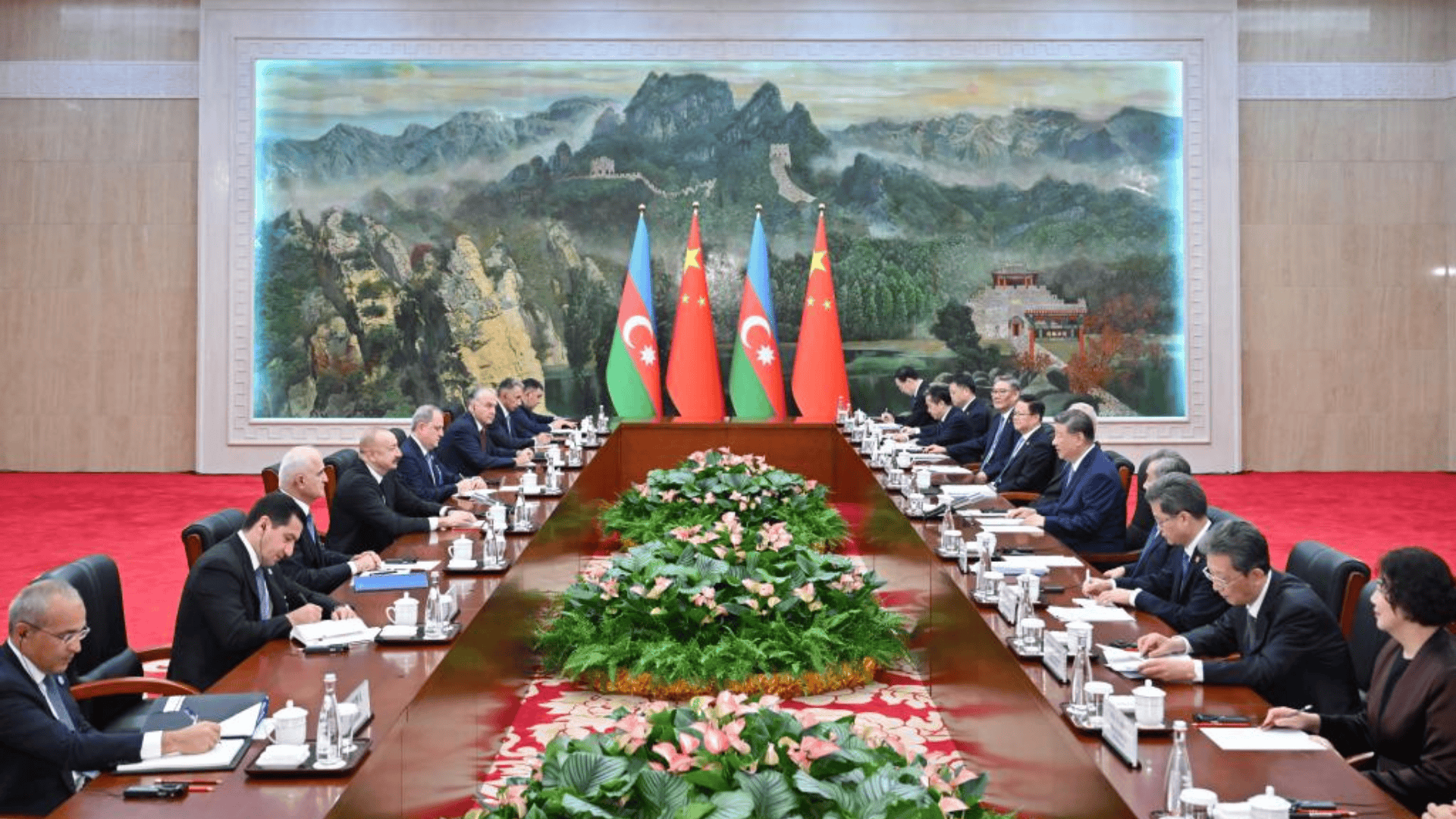UAE president’s visit to Azerbaijan: a strategic partnership between two rights-abusing states
Azerbaijan-UAE relations
Sheikh Mohammed bin Zayed Al Nahyan, president of the United Arab Emirates, has paid an official visit to Azerbaijan. Pro-government media hailed the trip as historic, stressing that 14 agreements were signed following the talks.
Azerbaijan’s government presented the agreements as proof of broad cooperation, saying they would deepen the strategic partnership in areas including the economy, energy, digital development, education and tourism.
According to official statements, relations have now been elevated to the level of a “comprehensive strategic partnership.”
Pro-government reaction
Pro-government media and some political analysts described the visit as a historic event. The newspaper Bakı Xəbər wrote that the signing of 14 documents — above all the declaration on strategic partnership and memorandums on energy cooperation — takes bilateral relations to a new level.
The paper noted that Emirati companies are actively involved in Azerbaijan’s green energy projects and support the country’s territorial integrity in the Karabakh conflict.
Xalq Xəbər highlighted the importance of Mohammed bin Zayed’s visit to the “liberated territories,” presenting the signing of the 14 agreements as proof of a strategic partnership, and noting that president Ilham Aliyev praised the UAE’s investments.
Potential benefits of the signed agreements for Azerbaijan
The Azerbaijani economic and financial portal fed.az highlighted the potential economic and social benefits of the new agreements:
Attracting foreign investment
Under the deals, Emirati companies may pour major investments into various sectors of Azerbaijan’s economy. These include Masdar’s 10 GW renewable energy projects and billions of dollars in ADNOC/XRG funding for the expansion of the Southern Gas Corridor, bringing a powerful inflow of capital. This would modernise the country’s energy infrastructure, boost gas exports (vital for Europe’s energy security) and increase state revenues.
Jobs and industrial development
Investment projects and joint ventures are expected to create jobs. The first solar power station in Garadagh district of Baku, built with UAE investment, is cited as an example, with similar future projects expected to provide hundreds of jobs in both construction and operation.
Another example is the construction of two container ships for the UAE at the Baku Shipyard, which will revive Azerbaijan’s shipbuilding industry, employ local specialists and bring in additional revenue.
Technology and knowledge transfer
Agreements in digital development and education will give Azerbaijan access to advanced technologies. Cooperation with Presight, for instance, will accelerate implementation of the country’s AI strategy and digitalisation of governance and the economy. AI in education — such as virtual tutors and smart teaching assistants — would improve personalised learning and teaching quality.
Economic diversification and trade growth
Documents on comprehensive economic cooperation, including a Comprehensive Economic Partnership Agreement (CEPA) and a Joint Business Council, are expected to boost non-oil trade. In 2024, bilateral trade reached $2.24bn. The new agreements foresee liberalised trade, joint business projects and a more favourable business climate, opening new opportunities for SMEs in particular.
Sustainable energy development
UAE investments in both fossil fuels and renewables will support balanced growth in Azerbaijan’s energy sector. As green energy projects expand, more domestic needs can be met by solar and wind, freeing natural gas for export. In the long run, this will bolster energy security and could turn Azerbaijan into a regional hub for renewable energy exports.
Human capital and social benefits
A memorandum on labour exchange will allow Azerbaijani specialists to work legally in the UAE. This promises better protection for migrant workers, reduced exploitation by intermediaries, and valuable skills that returnees can bring back to the domestic market.
Overall, the agreements are expected to spur investment, diversify the economy, accelerate innovation and strengthen human capital in line with Azerbaijan’s development goals. Officials say the deals are designed to benefit both sides and create new opportunities for sustainable cooperation.
Human rights and migrant workers
A report by the US Congressional Research Service (CRS) underlined serious human rights problems in the UAE: extrajudicial killings, torture, harsh prison conditions, political prisoners and arbitrary detention. It also flagged exploitation of foreign workers, including Azerbaijanis, with practices such as passport confiscation, withheld wages and threats of deportation. CRS concluded that despite official claims to fight human trafficking, the UAE has not done enough to protect refugees and victims of forced labour.
Critical voices argue that human rights benchmarks must be taken into account when building strategic partnerships with the UAE. They warn that energy and financial investments risk being prioritised over workers’ rights and democratic values.
Azerbaijan’s domestic context
Azerbaijan itself continues to face problems with human rights and economic transparency. International watchdogs accuse the government of cracking down on political opponents and restricting civil society.
Local critics argue that strategic alliances between authoritarian systems such as the UAE and Azerbaijan amount to “authoritarian solidarity”: regimes bolster each other’s legitimacy through energy resources and investment, while the rights and interests of their societies remain sidelined.
Azerbaijan-UAE relations





















